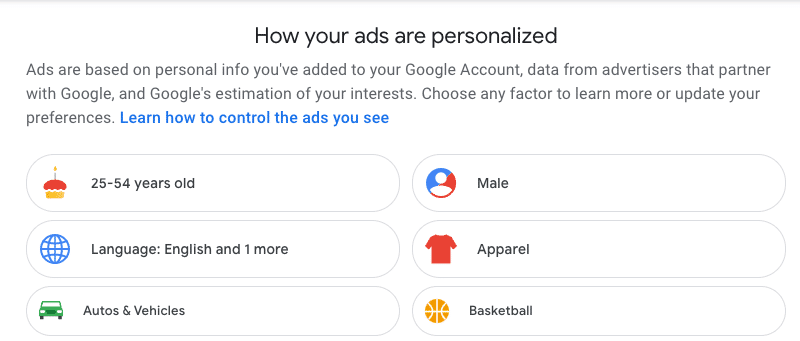What Google’s Depreciation of Cookies Means for Marketers
If you touch digital advertising in any capacity, you’re likely aware that the cookie is crumbling. For those of you who may still exist in ignorant bliss, allow us to break it down for you.
What the heck are cookies and why have they been in the industry news so much recently? Simply put, a cookie is a piece of tracking code that websites have long used as a way to track users’ online activities and then later target those users with ads based on their browsing history. Over the last few years, the cookie has come under increased pressure as concerns about user privacy and data transparency have gained traction. The most recent news on this front is that Google and its browser Chrome will be officially doing away with the 3rd party cookie in 2021, 2022, 2023. The date has been a moving target as Google continues to work on alternate solutions, but it seems likely that this latest timeframe is going to stick.
Should you panic? Does this mean the end of targeted ads? Absolutely not, and here’s why:
- Currently, only 3rd party cookies are going away, but 1st party cookies aren’t at risk, so any data gathered directly from interactions with consumers is still fair game. This means that advertisers will still be able to do things like use email addresses to engage with current customers, or build out lookalike audiences using 1st party data as a seed file. Here’s a handy article that explains the difference between cookie types
- While 3rd party cookies are still prevalent, there are a lot of factors that have already reduced marketers’ reliance on them in the past years:
- Ad blockers – up to 27% of US browsers already use technology to block cookie-based ads
- Firefox & Safari browser updates in recent years have defaulted to being cookie-less – granted, these two browsers account for less than 25% of the global browser market share compared to Chrome’s over 60%, but they still have a significant presence
- Cookie clearing – Up to 17% of internet users clear their cookies on a weekly basis
- The shift to mobile – More than 50% of web traffic comes from mobile, and while tracking cookies on mobile devices is possible, it’s highly fragmented with varying availability by mobile device, app, and browser
- Inaccuracy – If you’ve never done so, a fun exercise is to view the ad profile Google currently has on you. Below is just a partial snapshot of my profile (I’m a 36-year-old female who can only speak English, have never watched a basketball game, and couldn’t care less about cars…but I do wear clothes so they got me on apparel and age range)
While it’s true that the retirement of the 3rd party cookie will have impacts on marketers, it’s also true that the industry will continue to adapt. The vast majority of the internet is funded by advertising, so all the major players are very keen to find ways to enable marketers to keep running targeted ads so that publishers can keep earning all that ad revenue. One of Google’s newest propositions is to move towards a topic targeting process. What could this mean for health, wellness, or lifestyle brands? Let’s say you’re in the healthy food business, and previously you were able to target users based on specific sites they visited like food blogs or news sites with content about nutrition. With Google’s new Topic Targeting, you’d now be able to target users based on an aggregated interest, such as “healthy eating”.
It will be important for brands and their marketing partners to stay on top of these changes and work to adopt new technologies and targeting practices as they become available. In addition to seeking out these workarounds, now is also the time to think about diversifying your marketing mix so you aren’t solely reliant on vulnerable solutions like 3rd party cookies. Things like contextual targeting, or expanding into other channels may be viable solutions to help supplement your efforts. The team at Parallel Path would be happy to partner with you during these turbulent times and help navigate your brand through the changing landscape!


